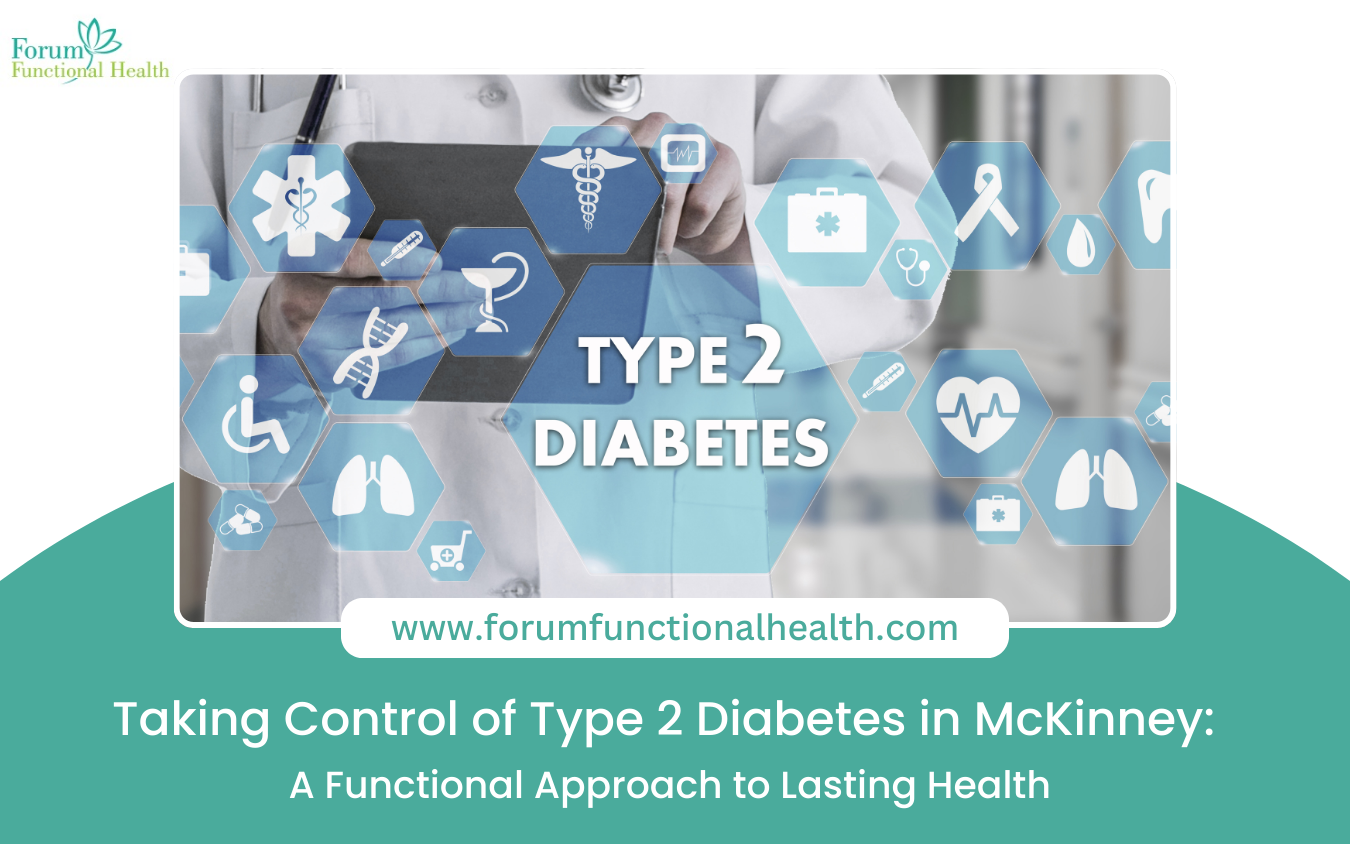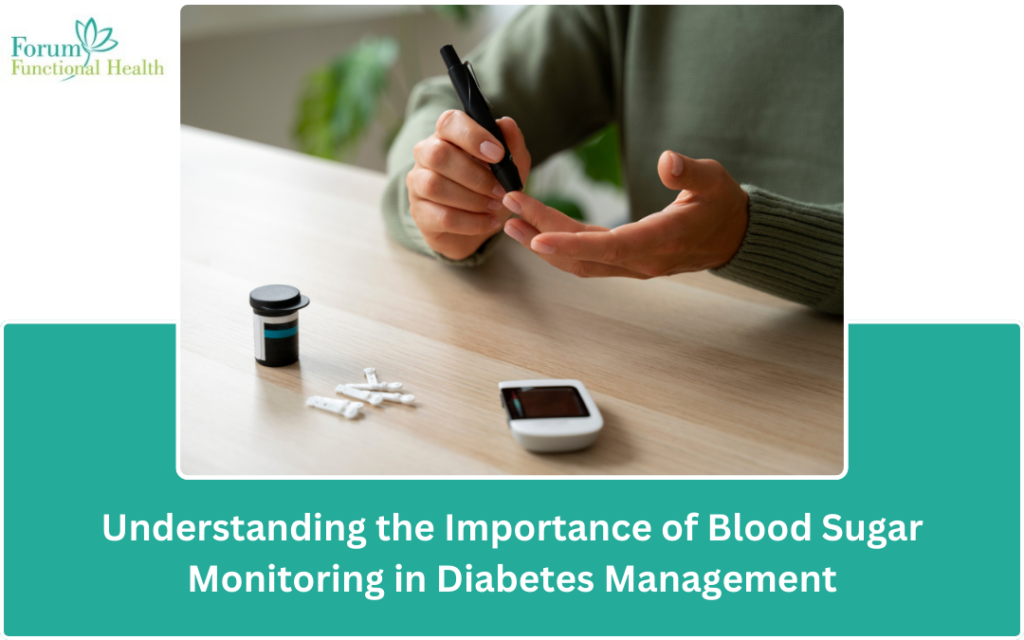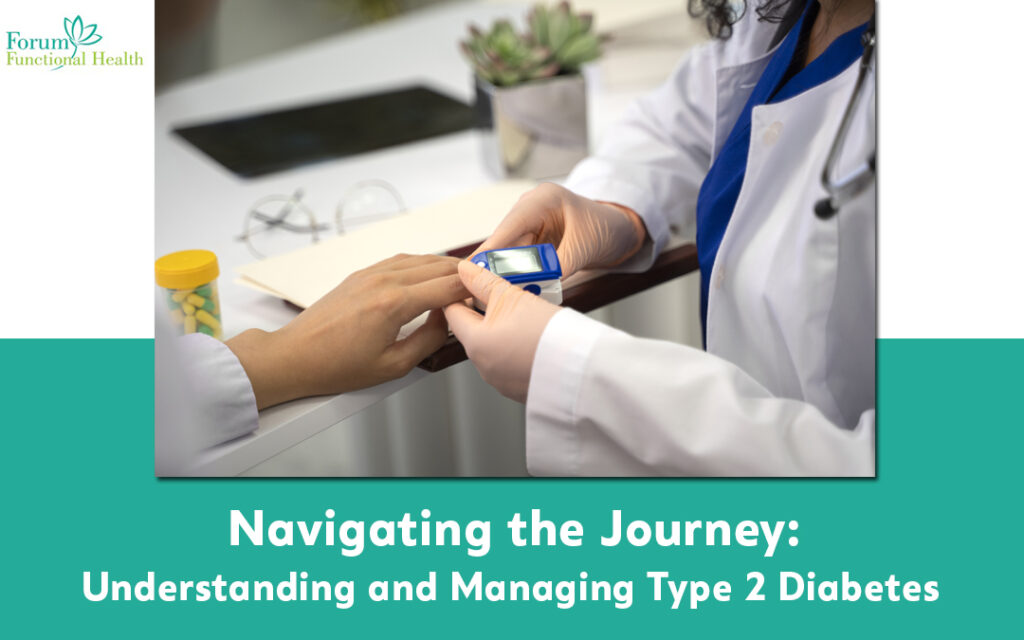What Is Chronic Pain? What Is Chronic Pain Syndrome?

Chronic pain is persistent pain that lasts for weeks, months, or even years. Unlike acute pain, which signals an injury or illness, chronic pain can continue long after the initial cause has healed. It affects daily life, mental health, and overall well-being. What Is Chronic Pain Syndrome? Chronic pain syndrome (CPS) is a condition where […]
Taking Control of Type 2 Diabetes in McKinney: A Functional Approach to Lasting Health

Living with type 2 diabetes in McKinney can feel overwhelming—but it doesn’t have to define your future. Millions of Americans are managing this chronic condition every day, but the good news is that with the right support, guidance, and personalized treatment, many people are reversing symptoms, regaining energy, and reclaiming control of their health. At […]
Can Eating Too Much Sugar During Pregnancy Cause Gestational Diabetes?

Pregnancy is a time of joy and anticipation, but it also comes with its own set of challenges, especially when it comes to managing health. One of the most common concerns among expectant mothers is the risk of gestational diabetes, a condition that can affect both mother and baby. A frequent question arises: Can eating […]
Early Warning Signs of Type 2 Diabetes: How to Spot Them Early

Type 2 diabetes is a growing concern in today’s fast-paced world, affecting millions of people globally. Early detection is crucial for managing this condition effectively and preventing severe complications. Recognizing the warning signs can make a significant difference in your health and well-being. If you’re concerned about your risk, it’s essential to understand these early […]
Early Signs of Type 2 Diabetes: What You Should Know

Type 2 diabetes is a chronic condition that affects millions of people worldwide, and its early detection can make a significant difference in managing the disease effectively. At Forum Functional Health Center, our focus is on helping you understand these early signs and take proactive steps toward better health. If you live in McKinney, Texas, […]
Understanding High-Functioning Depression: Key Symptoms You Shouldn’t Ignore

High-functioning depression is a hidden struggle that many individuals endure in silence. Unlike more apparent forms of depression, those with high-functioning depression often manage to maintain their daily responsibilities, giving the illusion of normalcy. However, beneath this façade, they experience a persistent, gnawing sadness that impacts their well-being and quality of life. What is High-Functioning […]
What Causes Type 2 Diabetes? Learn the Key Risk Factors

Ever felt like you could practically power a lightbulb with all the sweets you’ve eaten? Let’s talk about Type 2 Diabetes, a condition that affects how your body uses sugar (glucose) for energy. While it might sound scary, knowledge is power! So, grab a comfy chair, and let’s dive into what causes Type 2 Diabetes […]
The Impact of Sleep on Diabetes Management

Sleep is often touted as one of the pillars of good health, alongside diet and exercise. But its importance goes beyond simply feeling refreshed in the morning. Emerging research has shed light on the intricate relationship between sleep and various aspects of health, including its significant impact on diabetes management. In this comprehensive guide, we’ll […]
Understanding The Importance of Blood Sugar Monitoring in Diabetes Management

Living with diabetes demands constant vigilance and management. Among the myriad of responsibilities, monitoring blood sugar levels stands out as a cornerstone of effective diabetes care. Whether you’re newly diagnosed or a seasoned veteran in managing your condition, understanding the significance of blood sugar monitoring is paramount. In this comprehensive guide, we’ll delve into the […]
Navigating the Journey: Understanding and Managing Type 2 Diabetes

Living with Type 2 diabetes can be challenging, but with a clear understanding and effective management strategies, one can navigate this journey with confidence and improved well-being. This blog aims to simplify the complexities surrounding Type 2 diabetes, offering easy-to-follow advice and practical tips for individuals looking to take control of their health. Understanding Type […]
